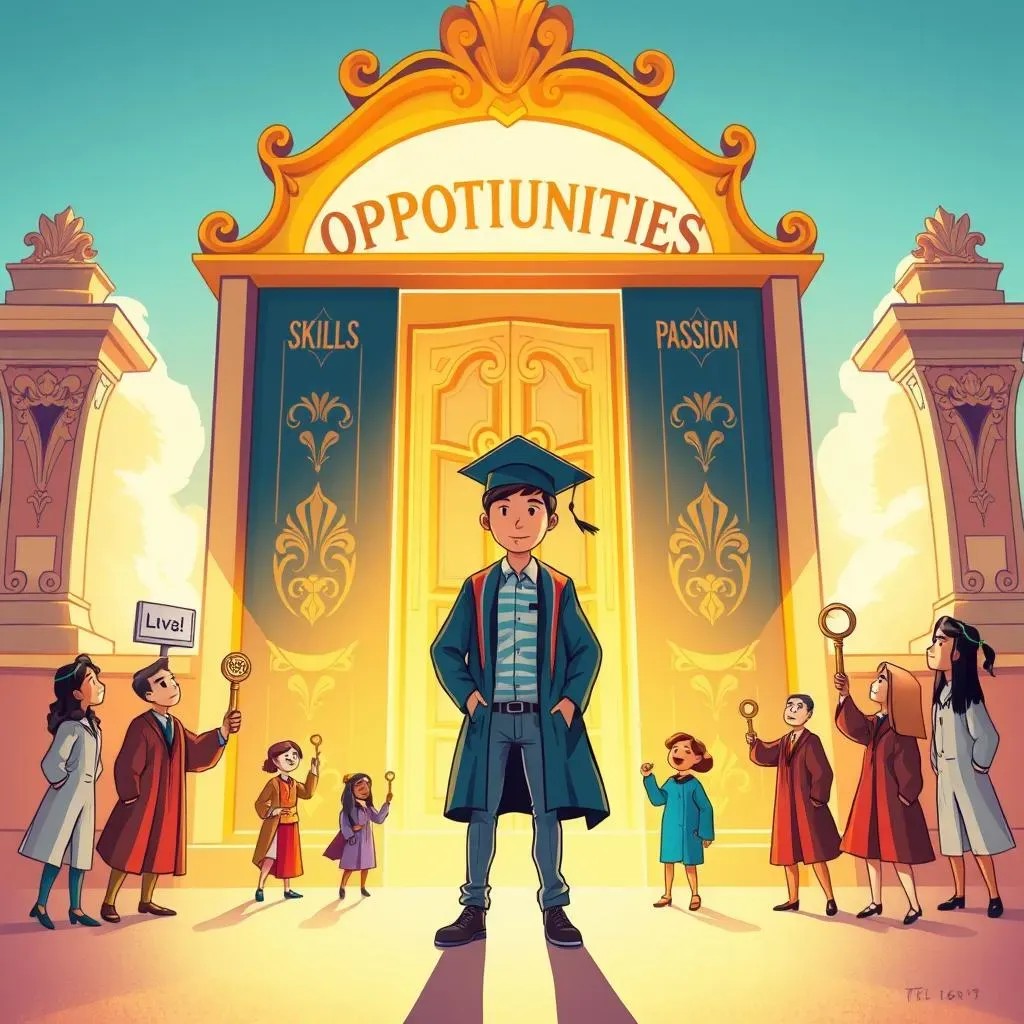Table of Contents
So, you're thinking about becoming a junior fundraiser, or maybe you just landed your first gig? That's fantastic, and maybe a little daunting. Stepping into the world of nonprofit development means learning how to connect people who have resources with causes that need them. It's not just about asking for money; it's about building relationships, telling compelling stories, and truly understanding the impact your organization makes. Many people start their careers here, learning the ropes from the ground up.
Landing Your First Role as a Junior Fundraiser

Landing Your First Role as a Junior Fundraiser
Where to Start Looking for Junior Fundraiser Jobs
so you've decided this fundraising thing isn't just about bake sales anymore, and you want in. Great! Finding that first gig as a junior fundraiser can feel like trying to find a specific grain of sand on a very large beach. Forget just scrolling endless job boards. Start by looking at organizations whose missions actually resonate with you. Are you passionate about animal welfare? Education? Environmental issues? Nonprofits often hire from within their volunteer base, so consider volunteering first. It gets your foot in the door, shows commitment, and lets you see the operation up close. Informational interviews are also gold. Reach out to people already working in development at organizations you admire. Most people are happy to grab a virtual coffee and share their story. You’d be surprised where those conversations can lead.
Crafting Your Application for a Junior Fundraiser Position
Alright, you found a listing for a junior fundraiser, maybe even one you heard about through a contact. Now you need to actually apply. Your resume needs to highlight any experience, paid or unpaid, that shows you can communicate, organize, and maybe even persuade people. Did you run a club in college? Organize a charity event? Manage a budget for a project? Those are relevant skills. Don't just list duties; frame them in terms of accomplishments. Quantify whenever possible. Instead of "Managed social media," try "Increased social media engagement by 20% over six months." Your cover letter isn't just a formality; it's your chance to explain *why* you want this specific junior fundraiser role at *this specific* organization. Show you've done your homework. Mention something specific about their recent work or mission that excites you. Generic applications usually end up in the digital bin.
- Highlight communication skills (written and verbal)
- Include any sales or customer service experience
- Detail project management or event organization roles
- Mention volunteer work or internships
- Quantify achievements on your resume
- Tailor your cover letter to each specific organization
Nailing the Junior Fundraiser Interview
So you got the interview. Nice work! Now comes the part where you actually have to talk to people. Prepare by researching the organization deeply. Understand their programs, their recent campaigns, who their major donors might be (a quick look at their annual report usually helps). Be ready to talk about why their mission matters to you personally. They want to see genuine interest. Prepare some stories about times you've overcome challenges, worked in a team, or had to convince someone of something. They might ask behavioral questions like, "Tell me about a time you failed and what you learned." Don't be afraid to be honest, but focus on the lesson learned. Ask thoughtful questions about the team, the day-to-day tasks of a junior fundraiser, and what success looks like in the role. It shows you're engaged and thinking ahead.
Essential Skills and Free Training for the Junior Fundraiser

Essential Skills and Free Training for the Junior Fundraiser
Skills That Actually Matter for a Junior Fundraiser
so you're in the door, or you're aiming for it. What does a junior fundraiser actually *do* and what skills keep you from feeling completely lost? Forget the fancy jargon for a second. At its core, fundraising is about communication and organization. You need to be able to write clearly, whether it's a thank-you note to a small donor or a draft for a grant application. You'll spend time talking to people – volunteers, potential donors, program staff – so being comfortable having conversations, and actually *listening*, is crucial. You also need to be ridiculously organized. Tracking donor information, managing timelines for appeals, keeping notes from meetings – it all falls apart if you're not on top of it. And frankly, resilience. You're going to hear "no." A lot. Learning not to take it personally and moving on is a skill you'll develop quickly.
Finding Free Resources to Boost Your Junior Fundraiser Game
Now, maybe you didn't major in "Philanthropic Studies" (is that even a major?). That's fine. You don't need a fancy degree to start learning the ropes. There are actually tons of free resources out there specifically designed for people entering the nonprofit world, including those stepping into a junior fundraiser role. Websites like NonprofitReady.org offer a massive library of free courses covering everything from grant writing basics to donor stewardship and using databases. Organizations like the Association of Fundraising Professionals (AFP) often have free webinars or introductory materials. Local community foundations or United Way chapters sometimes host free workshops. The key is knowing where to look and being willing to put in the time yourself. Nobody's going to hand you the knowledge; you have to go get it.
- NonprofitReady.org (extensive free courses)
- AFP (Association of Fundraising Professionals) introductory resources
- Local community foundation workshops
- Webinars from fundraising software companies (often basic tutorials)
- Online platforms like Coursera or edX (look for nonprofit management or communications courses)
Common Hurdles for the Junior Fundraiser and How to Clear Them

Common Hurdles for the Junior Fundraiser and How to Clear Them
Navigating the "No" and Donor Rejection
Let's be honest, as a junior fundraiser, you're going to face rejection. It's not a matter of if, but when, and how often. You might spend weeks cultivating a relationship, preparing a pitch, feeling really good about it, and then... nothing. Or worse, a polite "no." This isn't a personal indictment of you; it's part of the process. Donors have priorities, budgets, and sometimes just aren't the right fit *right now*. The key isn't to avoid rejection, but to learn from it. Why did they say no? Was the ask unclear? Was it the wrong timing? Did you not connect with their interests? Every "no" is data. Analyze it, debrief with your manager if possible, and adjust your approach for the next potential donor. Don't let it crush your spirit; let it sharpen your strategy.
Juggling Tasks and Feeling Overwhelmed
The life of a junior fundraiser often means wearing multiple hats. One minute you're writing thank-you notes, the next you're researching potential corporate sponsors, then you're stuffing envelopes for a direct mail appeal, and someone just asked you to pull a list from the database you barely understand. It's easy to feel like you're drowning in tasks, none of which feel fully completed before the next urgent thing lands on your desk. Prioritization becomes your best friend. Learn to ask clarifying questions: What's the deadline? What's the most important outcome? Don't be afraid to admit when you're overloaded and need guidance on what to focus on first. Clear communication with your team about your workload isn't complaining; it's ensuring you're working effectively and not letting things slip through the cracks.
Beyond Junior Fundraiser: Charting Your Career Path

Beyond Junior Fundraiser: Charting Your Career Path
Beyond Junior Fundraiser: Charting Your Career Path
so you've gotten your feet wet as a junior fundraiser, navigated the initial chaos, and maybe even secured a few donations. What's next after the junior fundraiser role? This isn't usually a forever job. The skills you're building – communication, project management, relationship building, data tracking – are transferable and valuable. You might move up within your organization to a Development Manager or Director role, taking on more responsibility for strategy and major gifts. Or, you could specialize, becoming a grant writer, a corporate relations specialist, or focusing on planned giving. Some people even take their skills to the for-profit sector in sales or marketing, though the mission-driven environment of nonprofits is a big draw for many. The key is to keep learning, keep networking, and pay attention to what aspects of fundraising you actually enjoy and excel at.
The Reality and Reward of Being a Junior Fundraiser

The Reality and Reward of Being a Junior Fundraiser
Alright, let's pull back the curtain a bit on being a junior fundraiser. It's not all glamour and champagne toasts with major donors (though sometimes there are snacks). The reality is often a lot of detailed work: updating databases, writing thank-you notes until your hand cramps, helping coordinate logistics for events, and yes, facing rejection. You might feel like you're doing the grunt work, and honestly, sometimes you are. But the reward? Seeing the direct impact of the funds you help raise. Reading a thank-you letter from someone who benefited from your organization's programs, knowing you played a part in making that happen, is a powerful feeling. It connects the sometimes-tedious tasks to a larger, meaningful purpose. It's a grind, but a grind with a mission, which makes it a different beast entirely.
- Reality: Detailed administrative tasks
- Reality: Facing frequent "no" responses
- Reality: Potentially lower starting salary
- Reward: Direct connection to mission impact
- Reward: Building valuable transferable skills
- Reward: Working with passionate people
The Junior Fundraiser Journey: Where Reality Meets Reward
Stepping into the role of a junior fundraiser is a significant move. We've covered getting started, the essential skills, how free resources can boost your knowledge, and the typical bumps in the road. It's not always glamorous, and you'll likely spend a good chunk of time on tasks that aren't front-page news, like data entry or donor thank-yous. But these fundamentals are the bedrock of successful fundraising. This role provides invaluable hands-on experience, teaching you the mechanics of donor relations, campaign support, and the sheer volume of work involved. It's a place to learn, make mistakes, and build a foundation. The reality is it's demanding, but the reward comes from seeing the tangible impact of the funds you help bring in, connecting donors to causes they care about, and growing your own expertise in a field that truly makes a difference.
